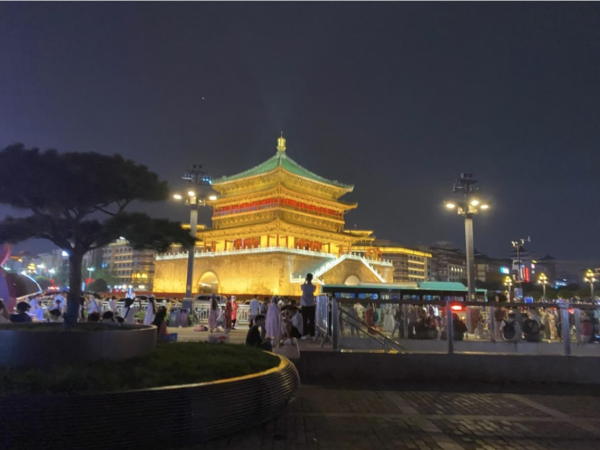Stranger Friends (original) (raw)

Have you ever felt awkward when you get into the back seat of a cab, greet the driver, and go through the whole ride in complete silence? Maybe most of you haven’t, but I certainly have, because that was almost never the case where I grew up.
After fourteen years of living in Beijing, I know every form of transport in the city like a duck in the water. There are buses, metros, shared bikes, and of course, taxis. Before transport apps like Uber and Lyft became popular, taxis with that eye-catching yellow were your go-to choice. They parked by every intersection downtown, and even if there wasn’t one near the street you were on, you would surely see that familiar color coming from the distance soon enough. When you caught a taxi, you would knock on the window, ask if they knew the way to the place you were going, and start a conversation that would not end until you got out of the car. Nowadays, with the more convenient transport apps prevailing, you see fewer taxis rolling down the road. Even if you find one, they usually no longer park by the street to wait for customers. Growing business on apps like Uber seem like a better choice to most people. They’ve also adopted a new professional attitude: Do everything by the book and get you to your destination without a word. I used to dread the type of social interaction that never allowed for a moment of silence, but now that it’s gone I miss those charming conversations in a taxi.
During my trip to Xi’an with my mom this summer (where the Terracotta Army is, if you aren’t familiar with the name), I experienced the warm-heartedness of taxi drivers that I have missed dearly. Xi’an is a city of history. Taking a corner on a crowded city street, you might run into a building from hundreds of years ago completely unprepared. Those well-protected buildings have blended into present-day Xi’an culture and daily life. To my surprise, the Xi’an people have also preserved the down-to-earth attitude and hospitality of a small town, even though it is one of the larger tourist cities in China.
We weren’t expecting a conversation that afternoon when we got into the cab. The driver checked my phone number and filled it in the app like normal. The following silence only proceeded for a few seconds, though, until he realized that we were tourists. All of a sudden, pride and love for the city radiated from his voice as he walked us through Xi’an traditions. During the twenty minutes we were on the road, without asking a single question, I learned which places are historical sites, which ones were built just for tourists, which snacks are worth trying, and how a special type of jade is their go-to choice when it comes to gift giving. He kindly made a to-do list for our trip and planned our afternoon (and evening) despite us never asking for advice on what to do. Following a recommendation of his, we visited a small monastery where a jade exhibition was held and where I bought a necklace.
I don’t love the talkative cab drivers simply for the fun chats on the road. I view them as the opening exhibits for other people’s worlds. They tell you interesting and personal stories, whether they are their own or from former passengers. One time I was forced to listen to a driver pitying a little girl he picked up who had run away from home and didn’t even have money to pay for the ride. He gave her some money, knowing that she would use it to buy McDonald’s instead of a ticket home. Other times I listen to drivers talking about their family and children, I answer countless questions, (mostly harmless and friendly ones) and take advice from them. I have loved realizing that for them, driving a taxi isn’t just a job, it’s a way to travel around the city, meet new people, and connect with the world. I love them for their willingness to talk to strangers openly, like close friends. It’s always a bargain when you pay for the fare and eventually walk off with—although you will probably never meet them again—a new friend.